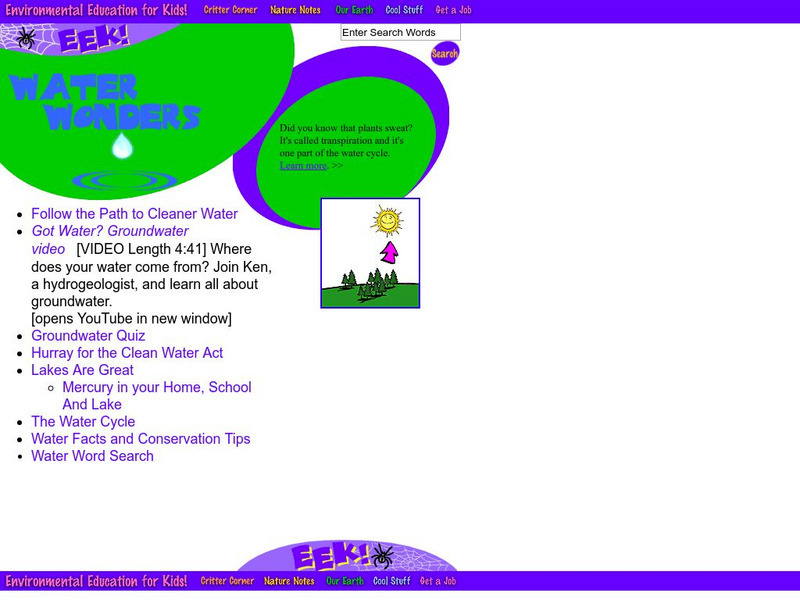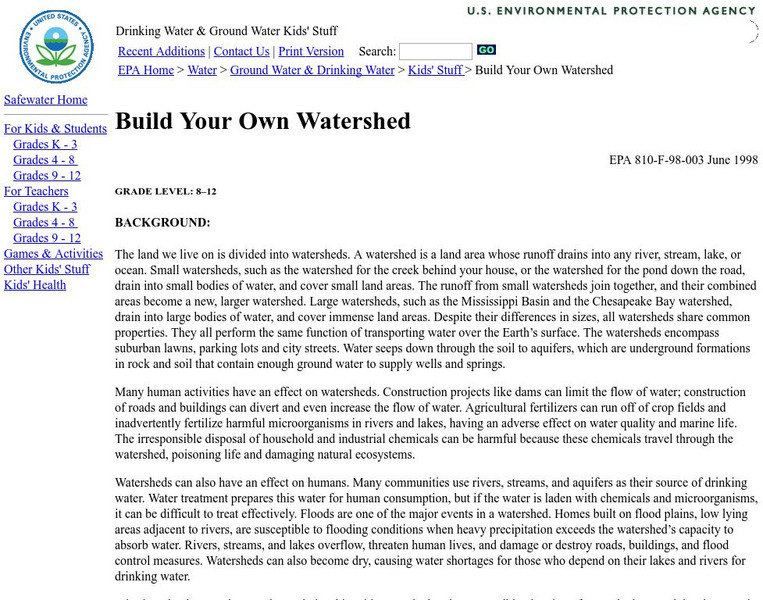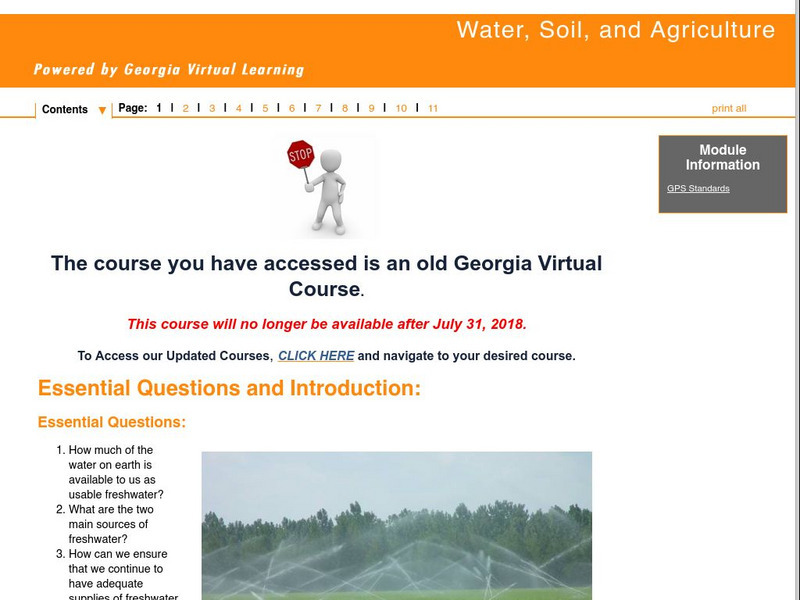Other
Idaho Department of Environmental Quality: Common Water Quality Measures
An organized resource highlighting properties of freshwater and water quality concerns.
Environmental Education for Kids
Eek!: Lake Superior
This site provides facts, illustrations, and more about the largest Great Lake. Includes descriptions of wildlife and industry. For grades 4-8.
Environmental Education for Kids
Eek!: Water Wonders
This site from the Environmental Education for Kids contains colorful and detailed information on water resources. Site covers fascinating tips and facts, as well as engaging quizzes on the wonderful world of water. Best suited for...
US Environmental Protection Agency
Epa: Build Your Own Watershed
How can you learn to build your own watershed? This site features an activity to illustrate the basic properties of a watershed. Don't miss out.
Other
Center for Watershed Protection
Explore this non-profit organizations site for watershed information.
PBS
Nh Pbs: Nature Works: Estuaries
Learn more about estuaries when you visit this informative site. This resource provides locations of and weblinks to estuaries in the United States.
Science4Fun
Science4 Fun: Water Cycle
What is the water cycle? Learn how the water moves to the atmosphere, how water moves across the land, the importance of the water cycle, and the effects of pollution.
NOAA
Noaa: Estuaries 101 Curriculum: Nutrients in an Estuary
An overload of nutrients, called eutrophication (Greek for "good-nutrition"), can be harmful to estuaries. This phenomenon is also referred to as "over-enrichment," or "nutrient pollution". Students will investigate the range of...
US Geological Survey
Usgs: North Carolina District Science Plan
The North Carolina District of the Water Resources Discipline, U.S. Geological Survey (USGS), is committed to collecting hydrologic data and conducting hydrologic investigations of the highest quality. North Carolina District staff...
Other
Nutrition Action: Water, Water, Everywhere
The Center for Science in the Public Interest offers a discussion of contaminants that can be found in tap water and chemicals added to water in the public water systems. The topics discussed are arsenic, parasites, lead, turbidity, and...
Georgia Department of Education
Ga Virtual Learning: Water, Soil, and Agriculture
Students learn about the fundamental importance of water, soil, and agriculture in sustaining the human standard of living; and the heavy toll that current agricultural practices take on water and soil resources.
US Environmental Protection Agency
Epa: Excuse Me, Is This the Way to the Drain Pipe? [Pdf]
Ever wonder where your drinking water comes from? And what happens to it after you're done? "Excuse Me, Is this the Way to the Drain Pipe?" is a great story and lesson plan about a drop of water going through the water cycle and through...
TeachEngineering
Teach Engineering: What Happened to the Water? Designing Ways to Get and Clean
In this scenario-based activity, students design ways to either clean a water source or find a new water source, depending on given hypothetical family scenarios. They act as engineers to draw and write about what they could do to...












![Epa: Excuse Me, Is This the Way to the Drain Pipe? [Pdf] Lesson Plan Epa: Excuse Me, Is This the Way to the Drain Pipe? [Pdf] Lesson Plan](https://content.lessonplanet.com/knovation/original/38691-8e8499c77a908b9761fec8738a536bad.jpg?1661255988)
